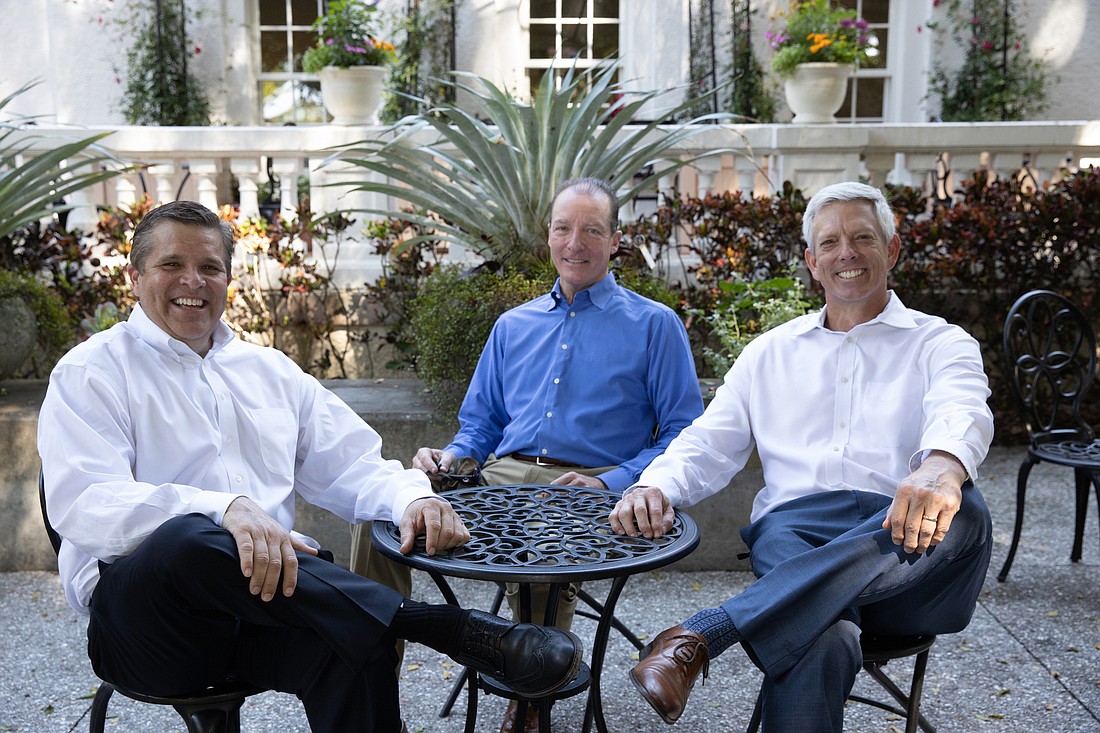- January 14, 2025
-
-
Loading

Loading

New salespeople at Atlas Insurance are given an interesting, somewhat counterintuitive, task when they start working at the Sarasota-based firm: they are told to avoid sales goals for at least their first two years. Sometimes three years.
In the competitive insurance world, where a growing book of business is gold, it’s a patience-over-quick profits philosophy that, to some, is jarring. Atlas Vice President of Sales Tommy Kochis says the method works because the firm considers its sales force long-term relationship-driven employees, not transient producers. “We can’t hire 30 people and hope two or three make it,” says Kochis, like some insurance giants do. “And we don’t want a desperate salesperson. That’s not good for the firm, or the client.”
‘We don’t want a desperate salesperson. That’s not good for the firm, or the client.’ Tommy Kochis, Atlas Insurance
To make up for the lower commissions in the first few years, Atlas pays salespeople a higher starting salary. And the firm bends that curve past two years, if necessary, says Kochis, to train the right people. “It’s not a get rich quick salary,” Kochis says, “but they won’t starve.” The firm has brought on three sales people in the past year and five over the past three years.
Founded in 1953, Atlas, which handles business, personal and insurance for high-net-worth assets, has grown premiums at least 14% annually for each of the last three years. It also has a 98% client retention rate in that time frame. The firm posted $7.4 million in revenue in 2019, the last time it disclosed sales data, which was up 6.5% over $6.95 million in 2018. It has some 47 employees and clients in more than 40 states.
The firm’s slow-build on new agents is only part of the company’s success. Atlas President Rob Brown, whose grandfather, Lee Brown founded the firm in 1953, says one of the firm’s defining characteristics is something it has been working on going on two decades: being a specialist in a world of generalists — another counterintuitive move in insurance.
For Atlas, that means focusing on a select group of sectors, namely industries that drive the Sarasota-Bradenton economy: condos, development, construction, hospitality and nonprofits.
Brown stresses that shifting to a specialist from being a firm that did generally, everything, isn’t about turning away clients that don’t fit the firm’s specialties. It’s more about focusing the firm’s efforts on spaces where it can do the most good for clients. In other words: don’t be afraid to turn away some clients, especially ones that require more time for exceedingly less revenue.
It’s a model the firm adopted from Roger Sitkins, a nationally known insurance consultant based in Fort Myers. Brown attended a Sitkins seminar in the late 1990s. A short while later, when Atlas was at what Brown calls a crossroads — it had so much business it didn’t know what to do with it, he says — the firm began to work closer with Sitkins. “He put into perspective that a lot of the energy we were spending was helping everyone who called us,” says Brown. “His vision, while not to shut off the spigot, was to channel the energy toward the clients that fit. And that just made a lot of sense.”
Atlas has spent the past two decades following that strategy. While it will go outside its specialties for certain clients, it hires staff and trains personnel only on its focus areas. That’s a long way from the firm’s early days, when Rob Brown’s grandfather, Lee Brown, founded Atlas. Lee Brown had previous experience in insurance, selling debit life insurance in the Great Depression. After a stint in the wholesale liquor business in Louisville, he moved to Florida, where he did what many newcomers do: invest in real estate. Rob Brown’s father, also named Rob Brown, joined the firm in 1954.
The youngest Brown joined Atlas in 1986, though, he says, “I was never groomed for it.” Brown considered a career in agriculture and started at Atlas more for a way to make some extra money, not necessarily following his passion. He did a bit of everything — mailroom, bookkeeping and building inspections among the tasks, and he grew to love it. Darren Howard joined the firm in 1994 as a vice president, and Kochis came on board in 1996. Howard, 57, and Kochis, 52, are now shareholders and partners in the firm, along with Brown, 57.
Like most businesses, Atlas hasn’t made it through the pandemic unscathed. Hiring, for support and related positions, has been one challenge, and maintaining a strong work culture in a work-from-home world has been another challenge. Pre-pandemic, the company hosted everything from barbecues to breakfasts for employees, and, also like most other businesses, Howard laments that bonding over Zoom “just isn’t the same.”
A bigger-picture issue, if not a current challenge, say all the executives is being sure to maintain the specialist mindset and not chase work that distracts from the mission. “Handling the growth and keeping the culture great is something we always think about,” says Kochis. “We don’t want to be too big of a company where you can’t make local decisions and all those things (we did to succeed) slip away.”